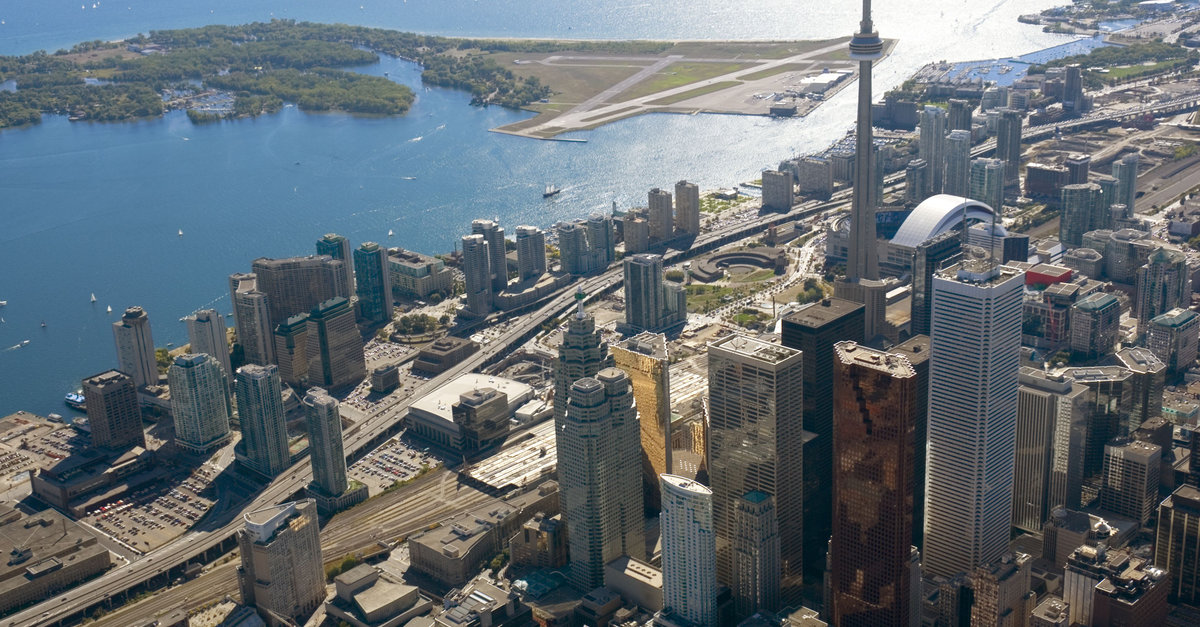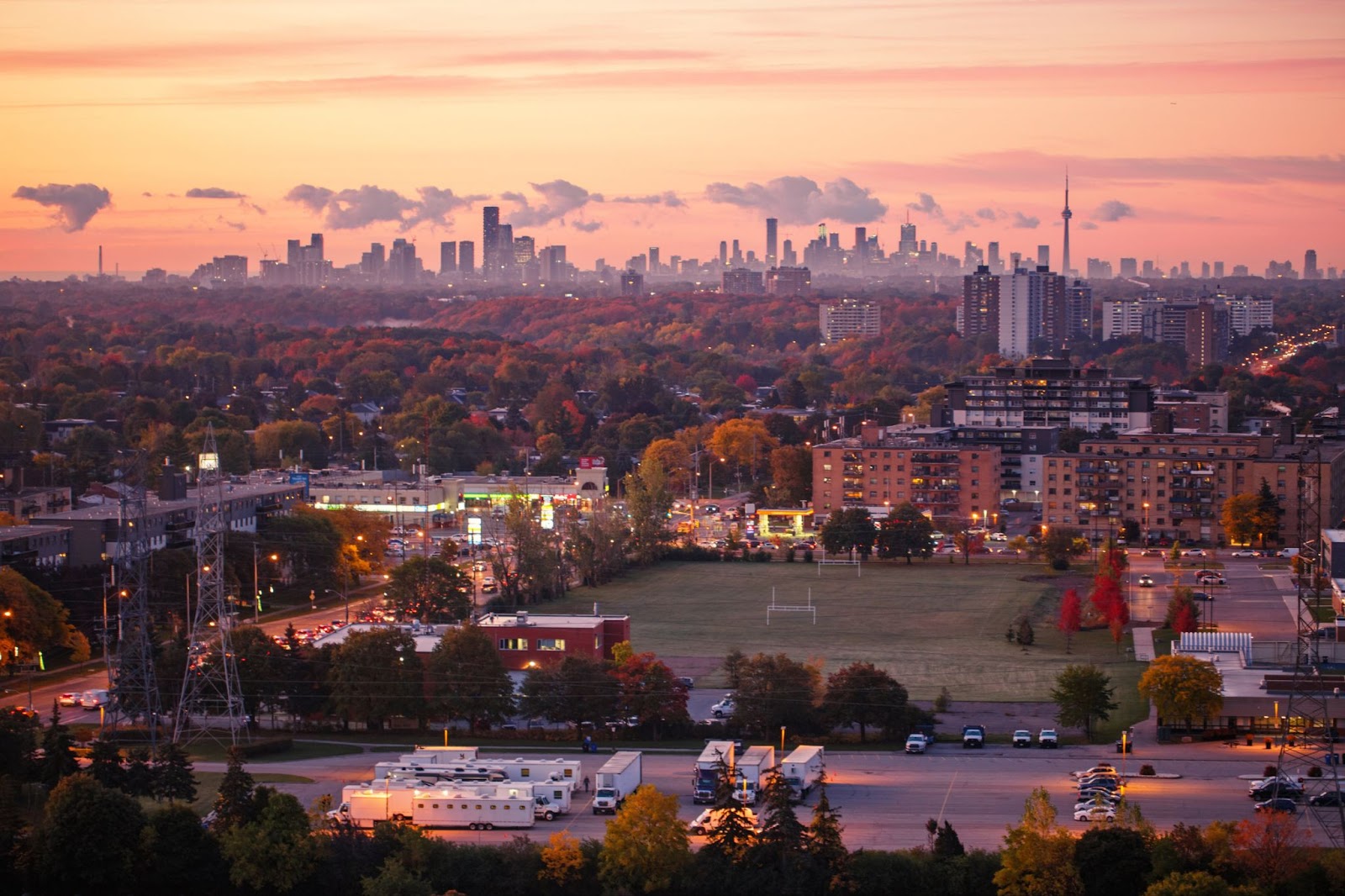Last Updated on October 24, 2023 by Corben Grant
In the last decade or so, Canada’s housing market has grown at an unprecedented pace and few areas exemplify the scorching market conditions and affordability issues better than the City of Toronto.
Not only is Toronto one of the country’s most expensive areas in terms of the average selling price, but it is also our most populous city, meaning widespread unaffordability is a very real and present issue for millions of residents. Beyond just those looking for somewhere to live, the city is also a huge market for investors who make up a large portion of all sales activity in the market.
After seeing near consistent growth for two decades, and with the last two years reporting , many are starting to wonder if Toronto, and more broadly, the Canadian real estate market, . While a cooler market may be great for would-be homebuyers who have been priced out, a full-on crash would be a very different beast. As a major economic driver in the country, a real estate crash in Toronto would not be very good for anyone and could have serious repercussions beyond the real estate industry.
On the other hand, the market now has already caused what many have called a housing crisis, with its own serious repercussions such as ballooning mortgage debts, growing homelessness, and a generation of young Canadians being forced to give up on homeownership entirely.
So, just how likely is a real estate crash in Toronto? Of course, no one can say for sure, but it is crucial that we examine the possibility and its potential outcomes. This article will cover why some believe a real estate crash could happen in Toronto and what it would mean for investors and residents alike.
What is a crash and how does it happen?
Before you can recognize a real estate crash, you need to be able to define the term. Naturally, prices in markets fluctuate all the time, but a daily decrease in prices does not signal a crash. Generally, a crash is a significant downturn in the market, usually featuring a sudden and severe drop rather than a slow decrease over time. In general, a crash is defined as a double-digit fall in values over a short period of time. The given period of time depends on the asset in question. While something like stocks can fall rapidly in just a single day, a real estate crash would likely be more in the time frame of weeks and months.
Crashes are often preceded by a bubble, a fitting description for a market that has grown in excess of its economic fundamentals. The bubble expands as prices grow beyond what they are truly worth, then all at once, it pops and leads to a crash. Crashes may happen fast but they are usually followed by a much longer recovery period.
The causes of a crash can be numerous, including unexpected or catastrophic events as well as simply a grossly imbalanced market. Interestingly, the psychological element of markets is one of the most dangerous drivers of market crashes.

As things look good, speculative investors flock to buy in order to ride the wave up. Buyers start to spend far more than what their assets should truly be worth with the belief that prices will continue to rise. When things turn around, those same investors may rush to get out fast to preserve as much of their return as possible.
The mass rush on the market is one of the major causes of rapid crashes and why stock market exchanges have implemented so-called ‘circuit breakers’ to halt rapid panic selloffs in their tracks in an attempt to prevent financial disaster.
The real estate market currently has its fair share of speculative investors and no such circuit breakers in place to prevent a rapid decline in housing prices.
What are the effects?
The effects of a market crash can be numerous. During a crash, investors will be amongst the hardest hit. In a city like Toronto where the investors make up a large portion of the market, this can do a lot of damage. Those who bought recently could see the most losses and those who were planning on selling would be forced to either take the loss or hold for much longer.
Those who sell at a loss may not be able to cover their existing mortgage principal, meaning the choice between paying a lot to sell or paying for a mortgage is worth far more than the home itself.
Furthermore, organizations that are invested in the market, either directly or through investment products tied to real estate, may suffer significant losses that can lead to further economic issues for both corporations and the wider public.
A homeowner with no mortgage to pay down and who does not plan on selling would be most able to weather a real estate crash. Those who must make regular payments on their home would still be at some risk as a real estate crash could disrupt other parts of the economy, leading to job losses and increased living costs. Lowered home values would also affect those who use home equity lines for regular expenses and household consumption would decrease, leading to further economic difficulty.
What caused previous crashes and how did the market recover?
Though the market has been continuing on its steady upwards trajectory for a long time, the idea of a market crash is not unheard of in Toronto.
The most prominent example of a downturn occurred in the late 1980s. From 1989 onward, home prices fell by about 30% in seven years and it took 13 years until house price growth surpassed previous highs.
The exact causes of the downturn in the 1990s are hard to pinpoint, but it’s generally seen as a combination of factors including rising inflation, increased interest rates, overzealous speculative investments, and an oversupply of housing on the market.
Our present-day situation only somewhat reflects the bubble of the past. We do have a high inflation rate and the Bank of Canada is raising its rates to help rein it in as it did in the late 80s. However, in the 80s Canada was just coming down from an even higher inflation period, which had caused many to invest heavily in real estate as a hedge against inflation. The interest rate increases of that time reached as high as 13%, compared to the less than 1% interest rate of the present. Another commonality is a large number of speculative investors getting into the market.

The most important takeaway from looking at the 1990s is that housing can, in fact, crash and any investor betting on infinite growth is behaving foolishly. On the other hand, we should also recognize that prices did return, albeit slowly, indicating that the fundamental value of real estate is very real and that long-term investments provide the best risk against market crashes. Finally, investors should recognize the danger in speculative investing and stretching their money too far, especially in the face of unprecedented times.
Why do some predict a crash?
Those who predict a crash in Toronto see the rapid growth in the market as unsustainable. With real estate prices increasing much faster than most can afford and the increasing demand from panic buyers and speculative investors, the market is becoming increasingly detached from economic fundamentals and more susceptible to a correction. A recent report indicated that homes in Toronto
There is also the fact that as house prices have gone up, homeowners have been forced to take on increasing amounts of debt in order to purchase their homes. In the last few years, the number of new mortgages with a high loan-to-income ratio has grown greatly. With our recent low rate environment allowing for low borrowing costs, this has been mostly manageable, but as things turn around and the central bank begins to raise interest rates once again, some may find themselves struggling to meet their payments. In a worst-case scenario, this could lead to a mortgage default crisis as seen in the U.S. during the 2008 financial crisis.
Finally, there is the argument that Canadian investors, homeowners, and policymakers have been betting against a crash for too long. For over a decade it has been clear that the Canadian housing market has been getting increasingly unhealthy. Rather than make efforts to correct this, the policy has only enabled and worsened the issue. The belief, though somewhat fallacious, is that the longer the market is allowed to grow unchecked, the more likely the crash becomes.
Reasons to doubt the imminent crash
On the other side, there are those who do not see a crash to be an imminent threat to the Toronto real estate market. This is not the same thing as saying that the market will continue at this pace forever – most agree that growth should begin to slow or even decrease in the coming years. However, a slow decrease is manageable.
It’s important to consider that with so much of our economy riding on the housing industry and with record-high levels of household mortgage debt, the government has good reason to soften the fall of the housing market. For example, though interest rates are rising, they are doing so slowly to avoid too much shock to the market.
Also consider the older generation who make up the largest portion of homeowners, many of whom are relying on the value of their home to fund their retirement and are also the most active voting cohorts. Governments who are interested in being elected do not have it in their best interest to cause their largest voting segment to lose thousands of dollars on their retirement funds and have some interest in keeping the market up.
Finally, there is the simple fact that Toronto is an economic force in Canada. The large amount of business being done in the city, and the amount of people looking to live there, give the real estate market an inherent demand and, with it, a value that could see Toronto maintain much more value in a downturn when compared to the nation as a whole.
A worst-case scenario
The issue with predicting a crash in Toronto is that the supposed bubble has been growing for so long that it would take a significant and unprecedented housing crash to bring prices back down. For example, even assuming a 40% crash which an Oxford Economics report recently highlighted as a “worst-case scenario”, this would still put Toronto only at price levels seen shortly before the start of the pandemic.

Nonetheless, with the sheer number of new investors who have purchased in the last two years, there will surely be a number of big losers if the real estate market crashes any time soon.
Another less disastrous and possibly more realistic outcome in Toronto is simply , and perhaps a lesser, or less gradual, decline in prices. This could result from increasing interest rates and growing supply allowing pent-up market demand to be satisfied and allowing more balanced conditions to arise. A few years of slowed activity and price growth would not be great for investors, but also not catastrophic, and would allow for the market to grow into its value and help with affordability concerns.
Overall, the possibility of a real estate crash in Toronto is real, though it is only one of many paths that the market could take down the mountain. For any investors who hold property in Toronto or are looking to buy, it’s crucial that you understand and account for these risks or you may face serious losses. Simply buying because you can and betting on continued growth is a recipe for failure, whereas a smart investor will be able to manage a downturn and come out on top in the end.
Corben joined CREW as a relative newcomer to the field of real estate and has since immersed himself and learned from the experts about everything there is to know on the topic. As a writer with CREW, Corben produces informative guides that answer the questions you need to know and reports on real estate and investment news developments across Canada. Corben lives in Guelph, Ontario with his partner and their two cats. Outside of work, he loves to cook, play music, and work on all kinds of creative projects. You can contact Corben at corben@crewmedia.ca or find him on Linkedin at https://www.linkedin.com/in/corbengrant/.









